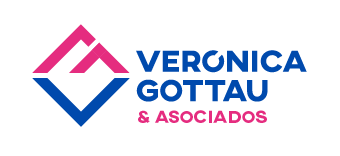In VG & Associates we draw on long-held concepts, beliefs and notions that may have an adverse impact on everyday working life.
¿How do we work?
INNOVATIVE METHODOLOGY
We create spaces for joint reflection called Organizational Devices. By means of these, we implement Research & Teaching techniques to work on real cases, benefiting from the insight of those involved and relying on internal resources.
CUSTOMIZED PRODUCTS AND SERVICES
Every organizational culture is unique, and we understand it that way. For this reason, we design customized programs to help organizations meet specific objectives.
INDIVIDUAL-IN-ROLE
As part of business growth, we work along-side Leaders to help them reach their full potential.
CONSULTANCY AND TRAINING
We help SMEs in their training processes, detection of training needs and design and execution of tailored plans. We train leaders with teaching tools, organizational learning, and coaching.
Our theoretical apporach
Our work in SMEs and family-owned companies is based on Elliott Jaques’ Requisite Organization theory.
We draw on two key concepts:
The underlying assumption is that:
Our tools
We provide conceptual and cognitive tools.
Conceptual tools
1. Work formula. Definition of work according to strata
It helps identify the Current Applied Capability of of the individuals and their Future Potential Capability.
2. Task Complexity Level (TCL)
It refers to the complexity in a role as measured by time-span of discretion of the tasks, which should match the Level of Mental Capability of a role holder.
A requisite organization should ensure the fit between the level of work complexity and level of individual capability of a role holder for every role in the organization.
3. Time-Span of Discretion (TSD)
The time-span of discretion is the targeted completion time of the longest task or task sequence in a role. Time-span of discretion measures the level of work complexity in a role.
4. Current Applied Capability (CAC) vs Current and future Potential Capability (CPC)
5. Time-Span of Discretion (TSD) vs Delegated Direct Production (DDP)
Cognitive Tools
1. Complexity of Mental Processes (CMP)
It refers to the number of variables and the level of uncertainty that the role holder can handle.
2. Cognitive skills to asses and evaluate:
- Analytical thinking
- Critical thinking
- Creative thinking
- Operacional thinking
3. Cognitive skills to generate and produce:
- Active learning
- Learning Strategies
4. Attitudinal competences: to reflect IN action
- Adaptative answers
- Cognitive flexibility
5. Attitudinal competences: to reflect ON action
- Leadership and Team building capacity
